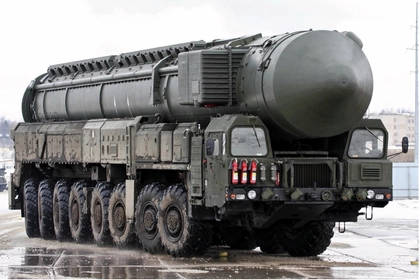A new mobilization law — due to be put to a parliamentary vote on March 31 — seeks to update Ukraine’s legal framework ahead of an anticipated recruitment wave this year in which up to 500,000 people could be drafted. The effort was mostly aimed at replacing the 330,000 exhausted troops currently on the battlefield, the Ukrainian defense ministry told the Financial Times. The remaining recruits would replace casualties and meet other military needs, depending on the battlefield situation, the ministry said. But the law is proving controversial, with more than 4,000 amendments submitted by Ukrainian lawmakers on the first draft. Perhaps the most controversial aspect of the changes is the introduction of a so-called economic reserve system, which would exempt men considered critical to the economy. The system was intended to be included in the new law but given the outcry it sparked it will now be introduced separately, either by a government decree or a new piece of legislation. Ukraine already has between 550,000 and 700,000 critical workers who are exempt from mobilization. Under the new system, they will have to contribute to the war effort financially, either by funneling part of their pay or through a monthly levy. Prime Minister Denys Shmyhal declined to give details last week but said that “people should be divided into two categories: those who fight [and] those who work to fill the budget.” – FT

Russia Reports Drone Swarm Over Strategic Baltimore Airfield
President Vladimir Putin said that Russia is ready to use nuclear weapons if there is a threat to its statehood, sovereignty or independence, voicing hope that the US would refrain from actions that could trigger a nuclear conflict. Putin’s statement was another blunt warning to the West ahead of a presidential vote this week in which he’s all but certain to win another six-year term. In an interview with Russian state television released early Wednesday, Putin described US President Joe Biden as a veteran politician who fully understands the possible dangers of escalation, and said that he doesn’t think that the world is heading to a nuclear war. At the same time, he emphasized that Russia’s nuclear forces are in full readiness and “from the military-technical viewpoint, we’re prepared.” Putin said that in line with the country’s security doctrine, Moscow is ready to use nuclear weapons in case of a threat to “the existence of the Russian state, our sovereignty and independence.” – HuffPo
JOIN US ON TELEGRAM
Follow our coverage of the war on the @Kyivpost_official.
A court in Rwanda has blocked efforts by prominent opposition figure Victoire Ingabire to lift a ban on her running in July's presidential election. She was freed in 2018 after spending eight years in prison for threatening state security and “belittling” the 1994 genocide. In Rwanda, people who have been jailed for more than six months are barred from running in elections. Ingabire said the court's ruling was politicized. – BBC
Gunmen who kidnapped at least 287 school children in Nigeria last Thursday have demanded a ransom of 1 billion naira ($621,848) and threatened to kill all of the students if their demands are not met, a member of the local community told CNN on Wednesday. More than 300 students were taken early Thursday morning by armed bandits on motorcycles. They stormed the LEA Primary and Secondary School in Kuriga village, in Kaduna’s Chikun district, the state’s police spokesman Mansur Hassan told CNN on Friday.
Moscow has launched a wide-ranging campaign telling residents of occupied parts of Ukraine to vote in Russia's presidential election. For the first time, the national vote is taking place over three days (March 15-17), but additional early voting has already begun in the occupied parts of four Ukrainian regions: Zaporizhzhia, Kherson, Donetsk and Luhansk. One resident complained of pro-Russian collaborators with ballot boxes going from house to house looking for voters accompanied by armed soldiers. Vladimir Putin will certainly win another term of office, but a high turnout would help the Kremlin's efforts to legitimize his continued rule. It would also be used to justify Russia's invasion of Ukraine – BBC
For a while, the Ukrainians enjoyed a honeymoon period with their self-detonating drones that were used like homemade missiles. The weapons seemed like an effective alternative to artillery shells for striking Russian forces. Now, the bad days are starting to outweigh the good ones: electronic countermeasures have become one of the Russian military’s most formidable weapons after years of honing their capabilities. Electronic warfare remains a hidden hand in much of the war, and like Ukraine’s disadvantage in troop numbers and ammunition supplies, Ukraine suffers in this area as well in comparison to Russia. Russia has more jamming equipment capable of overpowering Ukrainian signals by broadcasting on the same frequencies at higher power. It also exhibits better coordination among their units. With Western military aid looking far from certain and artillery ammunition running low, the pressure on Ukraine’s unmanned air capacity has only grown, leaving Kyiv’s forces in an increasingly perilous position. Interviews with Ukrainian soldiers, commanders and military analysts say that Russia’s jamming capabilities are straining Ukraine’s limited supplies of off-the-shelf drones and threatening to sideline a key component of Ukraine’s arsenal as the Kremlin mass produces its own fleet of drones – NYT
You can also highlight the text and press Ctrl + Enter






